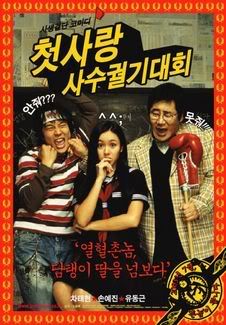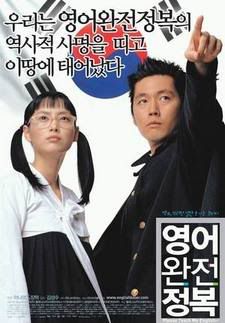.:Today's LSS:.As RX and WAVE are on retro today, this is the obvious LSS of the day...
Never Gonna Give You Up
by Rick Astley
We’re no strangers to love
You know the rules and so do i
A full commitment’s what I’m thinking of
You wouldn’t get this from any other guy
I just wanna tell you how I’m feeling
Gotta make you understand
* never gonna give you up
Never gonna let you down
Never gonna run around and desert you
Never gonna make you cry
Never gonna say goodbye
Never gonna tell a lie and hurt you
We’ve know each other for so long
Your heart’s been aching
But you’re too shy to say it
Inside we both know what’s been going on
We know the game and we’re gonna play it
And if you ask me how I’m feeling
Don’t tell me you’re too blind to see
(* repeat)
Give you up. give you up
Give you up, give you up
Never gonna give
Never gonna give, give you up
Never gonna give
Never gonna give, five you up
I just wanna tell you how I’m feeling
Gotta make you understand
(* repeat 3 times).:The Challenge:.And so I was with JM, Dominique, and Clair in Megamall, and I mentioned how my luck is such that I
always run into acquaintances in any mall I go to except Megamall.
Dom asked me to put that theory to the test, and within five minutes, I started meeting a flurry of people in Megamall, of all places.
Happily disproved. :)
.:Orals Are Great:.I meant exams, of course. Get your mind out of the gutter for a moment.
I was hearing oral exams yesterday, and I certainly enjoyed some of the discussions we had.
For instance, one of my students had this cute example about being courted by two guys at the same time, and how emotions points to the measure of value the both of them possess that logical reasoning cannot do if they, on the surface, seem to be equal. I then asked her an equally quirky situation about the V-day bombing if she happened to be PGMA and the culprit happened to be the First Gentleman...
At the same time, another student was talking about how privileged the Atenean is, and how they should learn to appreciate what they have that others don't : Philosophy, Theology, and Accounting. That last one made me laugh. He also used the Smart tagline to justify love: love is all we need.
All in all, while I can't comment on specific grades, inasmuch as there were some disappointments, I think that for the most part, the students did fairly well, but it could've been better. Dr. Ibana's approach at questioning is in questioning the things about the thesis statement people take for granted (After talking about thesis 10, for instance, he'd ask simply what love is.). As a tip in the future,
don't assume anything about the thesis statement. Always be meticulous enough to know every nook and cranny of the words used in the thesis statement.
Good luck to the remaining students. Do yourselves proud.
.:To Be Is To Be Substance-In-Relation:.Before I go on, I'd like to offer a short prayer for Fr. Ferriols. He slipped while on his way out of Dela Costa Hall, and fell face-first on the ground. He is currently under observation, and one can only hope that the fall wouldn't have any long-term effects on him.
In any case, one of the things that we recently talked about in his Metaphysics class was how people commonly perceive things and give meaning or substance to what seems to be a mere conglomeration of sense perceptions.
Call it the rediscovery of substance and accident: that in a being, its substance is that which it is, whilst its accident would be its features in this moment in time, i.e. a chicken's crowing is its accident, and so forth. One of the people who challenged the notion of substance was one of my favorites in the Philosophy of Religion class (But certainly not in Metaphysics, if only for his implausibility.), David Hume.
According to Hume, he believes that there is no such thing as a chicken, or a human being, or anything at all, as whatever this thing happens to be, it is merely a conglomeration of sense perceptions, as was mentioned above. However, he admittedly reverts to conventional comprehension in real life and realizes that this mode of thinking is simply not doable.
For Hume, it is merely convenience that tells us to label this thing that makes a crowing sound, that has so-and-so colors, as a “rooster”. It isn't a rooster. There is no such thing as a rooster. Our minds merely perceive some things that when put together signifies what is conveniently regarded as a rooster. Sheer atomistic thinking, yet ultimately idiotic.
For one, he himself admits that this mode of thinking is not something the conventional man can do. Considering how Philosophy has been showing time and again that it's not just a head trip and is about
doing Philosophy for the most part, this mode of (non) thinking that he persists on is plainly useless. Even he cannot do it, and even he will move out of the way when he sees something that he conveniently calls a car speeding in his direction.
Moreover, his notion is clearly a denial of the self. The self cannot be perceived by the senses. Looking in the mirror is already looking at a replica of the self, and not the self. If that were the case, and the senses cannot perceive the self, does that mean that there is nothing that can “conveniently” be referred to as the self? Is this not absurd, as even the most skeptical of thinkers, Rene Descartes, affirms that the one thing that cannot be denied is the self that attempts to deny everything? If even the self is being repudiated in Hume's line of thinking, then something is clearly wrong with his idea.
Lastly, and this is what I pointed out to Fr. Ferriols (He still doesn't know who I am... sigh.): inasmuch as Hume denies the capability of assigning genuine meaning or concepts to anything our senses can perceive, the mere fact that he perceives this or that color or this or that sound
already presupposes concepts all their own. His line of thinking is atomistically incorrect, as he must now go regressing ad infinitum if he wanted to show the most basic of things the senses can perceive. If the senses can perceive red, it is because it can perceive color. If the senses can perceive color, then these are merely gradiations of light or the lack of it. If the senses can perceive gradiations of light or the lack of it, then so forth, yadda yadda.
Clearly, Hume's mode of thinking is unfeasible, because his mode of thinking requires us to break down what our senses perceive to the most basic level (Which requires so much effort.), and even the most basic level is still an admittance of some concept that is already taken as true.
“Redness” is a concept. For him to distinguish the color red from a rooster is absurd, because red is still a concept that he intuitively knows and understands as red. Hume's mode of thinking, therefore, is fallacious from the get-go, simply because in its attempt to deny the existence of substance, it affirms the existence of other substances, anyway, albeit more basic ones.
What's the point, then? If we can bridge the gap from the most basic substance that we at this point don't even know to one level lower than the actual concept of the thing itself based on our perceptions, shouldn't it be logically palatable to accept the thing we perceive itself if we can accept everything that makes it up?
Interesting... I never thought I'd notice something like this and manage to point it out to Fr. Ferriols and actually make him agree with me...
.:The Professor In The Making:.Given the other day's mishaps, I have more or less realized that I do have what it takes to be a professor...
... I mean, I'm already absent-minded, for starters.
That being said, I guess this simply means that all I need is funkier hair and even more quirkiness and I'd be a bona fide professor in no time at all... heh.
.:Hell Week:.With all these things I'm doing for school, I guess it's no mystery that my blogging has certainly been taking quite a hit. Rest assured that after this week, things ought to normalize somewhat...
.:Should I?:.Dr. Ibana wants me to go and try out for that scholarship on Applied Ethics in Europe.
Of course, that'd mean leaving the country for at least a full year.
I'm tempted. Maybe this is precisely what I needed to finally break free from this crunch of an impending burnout, assuming I'm not burnt out already.
But then, there's the consideration of losing my job in WAVE.
If my job were to remain secure, I doubt I'd think twice about this... oh, well.
.:Ethically Speaking:.Here's an essay I'm writing for Grace...
When we speak about ethics and the medical profession, there is clearly no question that the two must go together. In and by itself there is a lot of confidence placed upon practitioners of the medical profession, such that it is certainly a normal expectation for them to be worthy of such confidence. The Hippocratic Oath strongly affirms the sacred cloak that protects the confidence between the doctor and the patient. It is quite apparent that the necessity for this confidence is currently being undermined by the evolution of the medical profession, but steps are still required to be taken in order to prevent the eradication of this appropriate course of action.
Inasmuch as computerized databases have made medical information of patients more accessible to anyone, inasmuch as medicine has become socialized over the years, it is still plausible to keep these things in check. Ethics in the medical profession come under fire and undermine the integrity of the industry as a whole, which is not what the industry needs. It's not entirely about being idealistic, in fact. It would be pragmatically sound to uphold ethical practices in order to continue meriting the trust and confidence of the patients in the industry itself, a lack of which would cause the industry to collapse from within.
We could use the Kantian Categorical Imperative in order to guide our ethical practices in medicine: a hard and fast system of determination that is a priori of any circumstances that may affect our decisions. However, given the lack of motivation idealism tends to pass forth due to our contemporary pragmatic needs, at the very least, if we cannot do the right thing for the sake of doing the right thing, it ought to be done to maintain confidence in the medical profession itself, lest this lack of confidence prevent us from practicing our profession, and thus curtailing our means to our pragmatic ends.
However, in all cases, leave us not forget to never treat a human being as merely a means to an end, if this were to be the one thing we should follow from the Kantian system.
That being said, while professional secrecy is indeed one of the most sacred and fundamental values of medicine, it is not the only value of the profession. For one, insofar as health is a fundamental right of any individual that society must provide for, those who are tasked to provide for health, i.e., the medical profession, must be competent and consistent with their administration of these health needs of those who require it. Because the individual has a right to expect these general and specific measures, then it is up to the medical practitioners to find the appropriate means to provide them.
Moreover, no matter how you look at it, the medical profession is a noble profession whose purpose of primacy is to provide competent and compassionate medical care, which simply underscores that the medical profession, while sometimes shamelessly meant for profit by others, is either being paid more than enough or more ideally, more than benevolent enough to provide such care. Because the medical practitioner wishes to hone his or her skills in the profession, then it is imperative for the practitioner to be constantly reminded to look after the best interests of the patient, lest he forget that in any industry, the customer is given primacy above all. It's a shame when we see people who try this or that new medical procedure no matter how unstable, if only to make a name for one's self in the medical industry, and by doing it unscrupulously to the patient who has become little more than a guinea pig for the practitioner's purposes.
In dealing with a code of ethics for the medical profession, we clearly see both the metaphysical and pragmatic concerns that these ethical practices seek to address. It cannot be denied that any persistence to do otherwise undermines both the very purpose of the profession itself: the patient's best interests, above all, as well as destroys the means by which the medical profession could sustain its commitment to these patients: their confidence. The moment either or heaven forbid, both, are compromised, the medical profession would certainly stand in jeopardy all the same, and these ethical norms are in place to somehow prevent such a collapse from happening..:On Why Korean Romantic Comedies Can Be Cathartic:.Warning: This vituperation will contain spoilers to "Windstruck", "Sex Is Zero", and "Crazy First Love".I'd be lying if I said that I could relate square-on to every Korean film that really pulled at my hearstrings. I haven't had someone very dear to me die yet (And I'm not hoping for it anytime soon.), so “Windstruck” doesn't really hit home in that way. I haven't had someone I love end up wrecking her life with some other guy, so “Sex Is Zero” isn't really that 100% speaking out to me, either. Neither have I ever had someone who would lie to me about not loving me because she wants me to be happy, so even “Crazy First Love” doesn't quite cut the mustard.
But you see, in all three films, there was one common denominator that I never quite shared with any of them all the time that yields quite a catharsis for me...
Their love stories weren't stories of unrequited love.
Truth be told, my situation in life isn't entirely one of completely unrequited love. Hades, I'm still technically in a relationship, to begin with. But for the most part, I think experience has allowed me to know what unrequited love is all about, and that experience remains to this day. These films unwittingly point me back to the moments when I loved and did not get loved in return. To moments that happen even to this day.
It's cathartic when I see Il-Mae crying for Tae-Il's sake in “Crazy First Love”. I can't quite see anyone crying for me the way she did, barring one person. It's cathartic when I see the camera panning around Kyunjin while she tearfully calls out Myung-Woo's name in “Windstruck”. It's cathartic when I see Eunsik trying to cheer up a secretly still-pregnant Eunhyo in “Sex Is Zero” by trying to make her laugh, yet the both of them end up crying because of the situation.
Korean romantic comedies never seem to stick to making people laugh and then feel giddy. Excluding “Everybody Has Secrets”, just about every Korean romantic comedy I've seen attempted to pull at my hearstrings, with varying degrees of success. The point of all this, after all is said and done, is simply that I'm a sucker for a good love story. And in the end, I flagellate myself when these wonderful love stories remind me of how miserable my so-called batting average really is.
And then I see those people whom I used to love get torn apart by the people they chose to love, and it hurts me further.
Or I see those people whom I wish not to love be so happy in love, completely oblivious to how I feel about them. Completely oblivious to this invisible war I wage between my head and my heart.
At the same time, I'm pretty much like all those male leads, in some respect: they're all mentally deranged, willing to go out on a limb for the one they love. Myung-Woo died for Kyunjin in “Windstruck”. Tae-Il made a complete fool of himself for Il-Mae in “Crazy First Love”. Eunsik took Eunhyo's ignorance of his affection and even accompanied her to an abortion clinic in “Sex Is Zero”. The only difference is that they all got lucky in the end. Or in the middle. I don't know if I ever will.
Okay, I'm done vituperating. Let me get back to watching “100 Days With Mr. Arrogant” or something.








